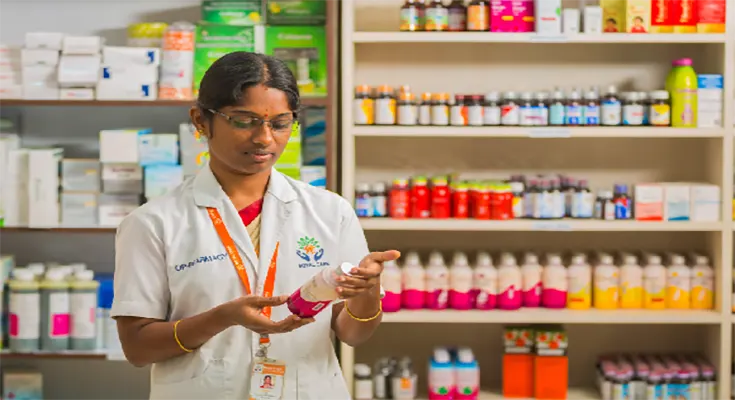The practice of pharmacy in Indonesia is an essential component of the healthcare system, providing critical services ranging from medication dispensation to patient counseling and clinical pharmacy. Pharmacists in Indonesia operate in various settings, including community pharmacies, hospitals, the pharmaceutical industry, and regulatory bodies. This article explores the current state of pharmacy practice in Indonesia, its historical context, regulatory framework, challenges, and future prospects. Visit pafikotajombang.org
Historical Context
Pharmacy practice in Indonesia has its roots in the early 20th century during the Dutch colonial period. The establishment of Sekolah Apoteker in 1923 marked the beginning of formal pharmacy education and professional practice. Following Indonesia’s independence in 1945, the healthcare system, including pharmacy practice, underwent significant transformations to meet the country’s growing healthcare needs.
Regulatory Framework
National Agency of Drug and Food Control (BPOM)
The National Agency of Drug and Food Control (Badan Pengawas Obat dan Makanan, BPOM) is the primary regulatory authority overseeing pharmacy practice in Indonesia. BPOM is responsible for regulating the distribution, manufacturing, and marketing of pharmaceuticals, ensuring that all products meet safety, efficacy, and quality standards.
Indonesian Pharmacists Association (IAI)
The Indonesian Pharmacists Association (Ikatan Apoteker Indonesia, IAI) is the professional organization that represents pharmacists in Indonesia. IAI plays a crucial role in setting professional standards, advocating for pharmacists’ interests, and providing continuous professional development opportunities. Membership in IAI is mandatory for all practicing pharmacists in Indonesia.
Pharmacy Settings
Community Pharmacies
Community pharmacies are the most common setting for pharmacy practice in Indonesia. These pharmacies serve as the first point of contact for many patients seeking healthcare services. Key responsibilities of community pharmacists include:
- Dispensing Medications: Ensuring accurate and safe dispensation of prescription and over-the-counter medications.
- Patient Counseling: Providing information on medication usage, potential side effects, and lifestyle modifications.
- Health Promotion: Engaging in public health initiatives such as vaccination campaigns, smoking cessation programs, and chronic disease management.
- Medication Management: Assisting patients with medication adherence and managing polypharmacy, especially for those with chronic conditions.
Hospital Pharmacies
Hospital pharmacies are integral to the healthcare delivery system, providing specialized pharmaceutical services within hospital settings. Hospital pharmacists’ responsibilities include:
- Clinical Pharmacy Services: Collaborating with healthcare teams to optimize medication therapy for inpatients.
- Medication Safety: Implementing protocols to prevent medication errors and adverse drug reactions.
- Sterile Compounding: Preparing intravenous medications, including chemotherapy and parenteral nutrition.
- Patient Education: Providing discharge counseling and educating patients on their medication regimens.
Industrial Pharmacies
Pharmacists in the pharmaceutical industry play a vital role in drug development, manufacturing, and quality control. Their responsibilities encompass:
- Research and Development: Conducting research to develop new drugs and improve existing formulations.
- Quality Assurance: Ensuring that manufacturing processes comply with Good Manufacturing Practices (GMP) and regulatory standards.
- Regulatory Affairs: Navigating the regulatory landscape to obtain marketing approval for new drugs and maintain compliance.
Regulatory and Governmental Bodies
Pharmacists working in regulatory bodies, such as BPOM, are involved in:
- Regulation and Compliance: Developing and enforcing regulations to ensure the safety, efficacy, and quality of pharmaceuticals.
- Pharmacovigilance: Monitoring adverse drug reactions and ensuring the safe use of medications.
- Public Health Initiatives: Contributing to national health policies and programs, including disease prevention and health promotion.
Challenges in Pharmacy Practice
Quality and Consistency
Ensuring consistent quality of pharmacy services across diverse settings is a significant challenge. While urban areas may have well-equipped pharmacies and highly trained pharmacists, rural and remote areas often face shortages of skilled professionals and resources.
Access to Medications
Access to essential medications remains a critical issue in Indonesia, particularly in underserved regions. Factors such as distribution logistics, affordability, and counterfeit drugs contribute to this challenge.
Professional Development
Continuous professional development is essential for pharmacists to stay updated with advancements in pharmaceutical sciences and practice. However, access to training and development opportunities can be limited, particularly for pharmacists in remote areas.
Regulatory Enforcement
Effective enforcement of regulations to combat counterfeit medications and illegal pharmacies is a persistent challenge. Strengthening regulatory mechanisms and increasing public awareness are crucial steps in addressing this issue.
Future Prospects
Integration of Technology
The integration of technology into pharmacy practice is transforming the landscape. E-prescriptions, telepharmacy, and electronic health records are becoming increasingly common, enhancing the efficiency and accuracy of pharmacy services.
Expanded Roles for Pharmacists
The evolving healthcare landscape is creating new opportunities for pharmacists. Expanded roles in patient care, such as medication therapy management (MTM), chronic disease management, and preventive care, are becoming increasingly important. Pharmacists are also playing a more significant role in public health initiatives, such as vaccination programs and health screenings.
Global Collaboration and Standards
Aligning with global standards and fostering international collaboration are key goals for the future of pharmacy practice in Indonesia. Participation in global networks and adherence to international guidelines can enhance the quality and recognition of Indonesian pharmacy practice.
Research and Innovation
Promoting research and innovation in pharmaceutical sciences is essential for addressing emerging healthcare challenges. Encouraging pharmacists to engage in research activities can drive advancements in drug development, pharmacotherapy, and public health.
Conclusion
The practice of pharmacy in Indonesia is a dynamic and evolving field, playing a crucial role in the healthcare system. From community pharmacies to hospitals and regulatory bodies, pharmacists are integral to ensuring the safe and effective use of medications. Despite challenges such as quality consistency, access to medications, and regulatory enforcement, the future of pharmacy practice in Indonesia holds promising prospects. Integration of technology, expanded professional roles, global collaboration, and a focus on research and innovation are set to drive the field forward, enhancing the health and well-being of the Indonesian population. As the healthcare landscape continues to evolve, pharmacists will remain at the forefront, contributing their expertise to improve patient outcomes and public health.





